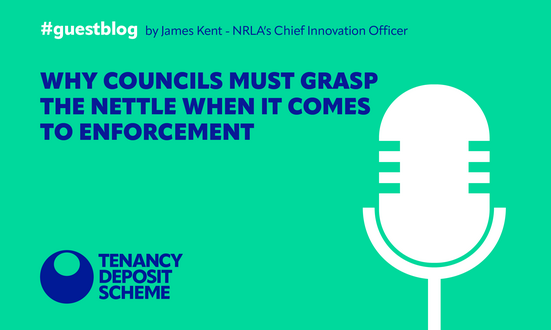With plans that would see landlords pay up to £10,000 per property for energy efficiency improvements now axed by the Prime Minister, what can we expect to see next for the private rented sector? James Kent, Founder and Managing Director of Safe2, now part of the NRLA, shares his thoughts on what the future holds.
Government plans to implement stringent new energy efficiency rules in the PRS have been dropped, but what does this actually mean for landlords?
The Government first mooted plans to introduce a minimum Energy Performance Certificate (EPC) rating of C for privately rented homes back in 2020, with a consultation on the proposals ending more than two years ago.
Since then landlords have been left in limbo, with the proposed 2025 deadline for new lettings – 2028 for all rentals – looming large on the horizon.
During this time, the NRLA flagged serious concerns on aspects of the proposals including funding for improvement works, the blanket cost cap and tight timescales for implementation.
Last week’s decision shows the Government has listened to those concerns.
The ultimate ambition is an admirable one. Improving the energy efficiency of homes makes them greener and cheaper to run, benefitting landlords and tenants.
However, the proposals as they were laid out were demanding too much of landlords, not least in the middle of a cost-of-living crisis.
As my colleague Ben Beadle, NRLA’s Chief Executive, outlined on BBC Newsnight last week, for some the damage has already been done.
Bills of up to £10,000 per property for energy improvement works were the last straw for some landlords who have cut their losses and sold up. The Government u-turn is cold comfort to them – and the tenants they were housing who have lost their homes.
Other landlords, hoping to stay ahead of the game have already shelled out for improvement works.
Rishi Sunak, justifying his decision to scrap the policy, said the huge costs associated with upgrading rental homes was likely to be passed on as higher rents to tenants and in a statement issued on gov.uk, the Government said it would, ‘scrap policies to force landlords to upgrade the energy efficiency of their properties, but instead continue to encourage households to do so where they can’.
However it is likely there will be a replacement scheme mooted at some point, regardless of who triumphs at the next election. Ed Miliband, Labour’s shadow secretary for climate change, has already said he is ‘in favour’ of requiring rented properties to meet a minimum EPC C rating.
Whatever any future plans include, it is vital that the private sector is given support to fund any improvement works, and that landlords are kept in the loop when it comes to the Government’s direction of travel so they are able to make informed decisions about their investment.
My colleagues at the NRLA have repeatedly stressed the risks of a one-size-fits-all approach to finance across the country and the importance of tax breaks to facilitate improvements and we will continue to campaign on this going forward.
Ten thousand pounds is a lot of money in anyone’s book, but it’s clear it would have a much bigger impact on the business of a landlords with homes in poorer areas of the north than it would of those with high value properties in central London who can command much higher rents.
We would ask that any future scheme takes this into account.
Ministers now need to use the space they are creating to develop a full plan that supports the rental market to make the energy efficiency improvements we all want to see.
This must include appropriate financial support and reform of the tax system which currently fails to support investment in energy efficiency measures.
Is there anything I should do in the meantime??
Energy efficient homes are better for everyone. They minimise energy usage and therefore costs, making them more attractive for tenants.
Making homes as energy efficient as possible will help prepare them for low-carbon heating systems, such as heat pumps. Gas boilers are still planned to be phased out in 80%of homes by 2035 and the Government will be increasing the Boiler Upgrade Grant to install low-carbon alternatives to £7,500.?
Many landlords are already improving the energy efficiency of their properties when they are able to do so.
Turnover of tenants or void periods are useful opportunities to upgrade, and landlords can check whether they or their tenants are eligible for support through the Great British Insulation Scheme (GBIS) or local funding schemes.?
More information
The requirement for a valid EPC is still in force. You can arrange an EPC, alongside other safety certificates via Safe2. Find out more here.
For more information on the NRLA’s campaign on energy efficiency, including its key asks of Government click here.
The NRLA runs an energy efficiency course for landlords keen to find out more about improving the performance of their rental properties. For more information click here.

James Kent, Founder and Managing Director of Safe2 and Ben Beadle NRLA’s Chief Executive
NRLA: The NRLA updates landlords on all the latest legislation changes affecting the sector and offers expert advice, training and other exclusive services and benefits.
The views expressed in this content are solely those of the author alone and do not necessarily represent the views of TDS, its officers, or employees.



